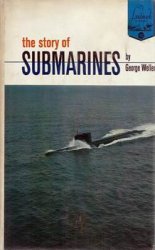In July 1892 the People’s Party (Populist Party) held its first national convention in Omaha, Nebraska, and adopted one of the most memorable party platforms in American history. With a stirring preamble written by Ignatius Donnelly of Minnesota, it proposed reforms dealing with transportation, land, and finance. The Omaha platform called for a graduated federal income tax; the nationalization of the transportation system; the Australian, or secret, ballot; the free and unlimited coinage of silver (see Free Silver movement); a flexible currency system of at least $50 per capita; laws to discourage large-scale land speculation and alien ownership of land; immigration restrictions; the eight-hour work day; the direct election of U. S. senators; a constitutional amendment that would limit the president and vice president to one term; and the initiative that would enable the public to compel the legislature to consider a proposal and the referendum that would allow the voters to approve or turn down a measure.
This platform was not hastily assembled. As the farmers’ alliances spread throughout the South and Middle West between 1887 and 1890, they prepared the way for the People’s Party and the Omaha Platform by contributing ideas and leadership. At a meeting in Ocala, Florida, in 1890, representatives of the farmers’ alliance discussed the option of fielding a national political party in the upcoming 1892 elections. It was at this meeting that the Ocala demands were issued and became the cornerstone of the Alliance movement for as long as it existed. First and foremost, the Ocala demands called for the creation of “sub treasuries” that would allow farmers to store their crops in government warehouses. In return, they could claim Treasury notes for up to 80 percent of the market value of their crops. This loan was to be repaid when the crops were sold. The idea was to allow farmers to keep their crops in storage until market prices were more favorable. At the same time, the low-interest government loans on the value of the crops would help farmers pay their annual debts. Furthermore, the Ocala demands urged the free and unlimited coinage of silver; a graduated federal income tax; an end to protective tariffs and the national banking system; the direct election of U. S. senators; and effective government regulation and, if necessary, control of all railroads and public utilities. Thus, several of the reforms embodied in the Ocala demands reappeared in the Omaha platform, which in turn shaped the ideological core of the Populist movement. Although the Populists were defeated, most of the Omaha platform was subsequently enacted by the major parties.
Further reading: Lawrence Goodwyn, Democratic Promise: The Populist Moment in America (New York: Oxford University Press, 1976); John D. Hicks, The Populist Revolt: A History of the Farmers Alliance and the People’s Party (Lincoln: University of Nebraska Press, 1961).
—Phillip Papas




 World History
World History









